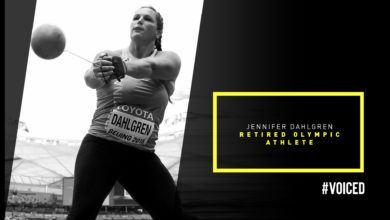What was your first thought when you read the title of this article? I can almost guarantee that if you’re an athlete your answer would have something to do with a sporting dream: going to the Olympics, breaking a national record, or maybe becoming a professional.
Whenever I talk with athletes, one of the first questions I ask is “What is the Dream?” and I have yet to hear any athlete tell me about a non-sporting dream first up. They usually have to be prompted to give a dream outside of sport and even then, most often say something a bit vaguer, like having a business, or simply ‘being successful’ in life.
Too often athletes see dreams and goals linked only to their sports careers.
But what happens when their sports career end (and they all will – that is the only guarantee in elite level sport)? I see it time and time again, all of a sudden an athlete finds themselves needing to find a new dream and goal in life, and it can be incredibly difficult to do so. Part of the challenge is the nature of the sports dream itself. It is usually one formed in childhood and is goosebump-inducing stuff. There is little that compares with the thrill of competing at the highest level, running out into a packed stadium of 60 000 people, or the feeling you get when you win. In fact, when you speak to retired athletes almost all mention that feeling as something they miss about sport. Trying to find a dream that excites as much passion is a challenge.
And maybe that’s part of the issue – thinking you need to have a dream that gives you the same thrill. The secret that no one talks about is that the dream outside of sport will not give you the same feeling as competing, and it is a mistake to try and somehow replace what you felt as an athlete in ‘normal’ life.
However, the really amazing news is that even though life after sport will be different, so many retired athletes say that their life has a lot more meaning than it did while they were competing. Working in a job you love, creating deeper friendships (an Olympic gold medallist once said to me that the better you do at the Games, the fewer friends you have), raising a family, contributing to your community or society.
Sir Roger Bannister, famous for being the first person to break the 4min mile, went on to become a neurologist and at the end of his life said that he actually considers his contribution to medicine his greatest achievement. I think this speaks to the shift in mind set that athletes need to have: going from being the best in the world, to being the best for the world (as legendary ice hockey player Dough Smith said). Dreams and goals that focus on being the best for the world help athletes find meaning and purpose beyond their sports careers, and while nothing will compare to having your national anthem played for you when you stand on top of a podium, it doesn’t have to. As we know, a sports career is like living in a temporary fairy-tale, but athletes need to see that there is another magical world waiting for them!


